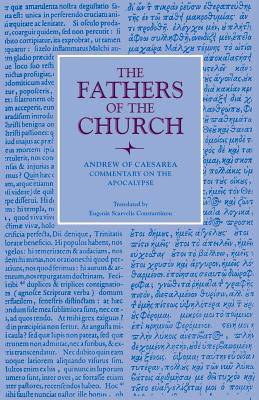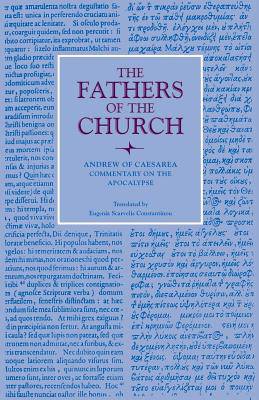
- Afhalen na 1 uur in een winkel met voorraad
- Gratis thuislevering in België vanaf € 30
- Ruim aanbod met 7 miljoen producten
- Afhalen na 1 uur in een winkel met voorraad
- Gratis thuislevering in België vanaf € 30
- Ruim aanbod met 7 miljoen producten
Zoeken
Omschrijving
The early seventh-century Roman Empire saw plague, civil war, famine, and catastrophic barbarian invasions. Eschatological fervor ran high, as people were convinced that the end of the world was near. In this climate, a noteworthy Greek commentary on the Apocalypse was composed by Andrew, Archbishop of Caesarea, Cappadocia. In 611 Andrew of Caesarea applied his superior exegetical skills to the challenging Book of Revelation and concluded that the end was not near, in spite of the crises that the empire was facing. Striking a balance between the symbolic language of the book and its literal, prophetic fulfillment, Andrew's interpretation is a remarkably intelligent, spiritual, and thoughtful commentary that encourages the pursuit of virtue and confidence in the love of God for humanity. Standing in the stream of patristic tradition, Andrew wove together pre-existing written and oral interpretations of Revelation passages by earlier Fathers and anonymous teachers, drawing together various interpretive strands and pointing to a previously unknown rich tradition of Apocalypse interpretation in the Greek East. His commentary also influenced the textual transmission of the Apocalypse and created a unique text type. Andrew's commentary quickly eclipsed that of Oikoumenios to become the predominant and standard patristic commentary for the Greek East as well as the Slavic, Armenian, and Georgian Churches. Andrew influenced Eastern Christian eschatology and is responsible for the eventual acceptance of Revelation into the canon of the Oriental and Eastern Orthodox Churches.
Specificaties
Betrokkenen
- Auteur(s):
- Uitgeverij:
Inhoud
- Aantal bladzijden:
- 270
- Taal:
- Engels
- Reeks:
Eigenschappen
- Productcode (EAN):
- 9780813228112
- Verschijningsdatum:
- 1/12/2011
- Uitvoering:
- Paperback
- Formaat:
- Trade paperback (VS)
- Afmetingen:
- 140 mm x 216 mm
- Gewicht:
- 367 g

Alleen bij Standaard Boekhandel
+ 145 punten op je klantenkaart van Standaard Boekhandel
Beoordelingen
We publiceren alleen reviews die voldoen aan de voorwaarden voor reviews. Bekijk onze voorwaarden voor reviews.











